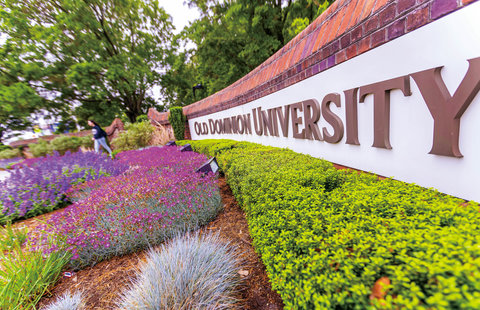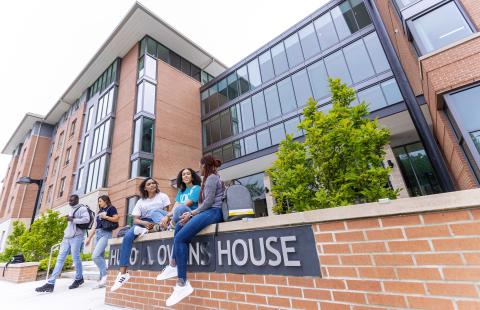The purpose of the Master of Library and Information Studies is to prepare students with the theoretical knowledge and practical skills that will enable them to become highly proficient librarians, media specialists, and information authorities. Students are advised through a 30-credit-hour plan of study completed with an advisor and filed with the program director in the semester when 12th credit hour is completed. Coursework may focus on a type of library: academic, public, or special or an area of library and information work such as youth services or evaluation & assessment. Coursework for the MLIS is offered asynchronously and online. Coursework is project-based and students are expected to spend time in a library for most courses. All students complete an internship.
Program Highlights
-
Equips students with the knowledge, skills and dispositions they will need for careers in a complex information and technology-based society.
-
Engages students with their communities by providing project-based learning and internships in real-world settings.
-
Focuses on the preparation of culturally responsive librarians who can provide resources and services for increasingly diverse communities for the Commonwealth of Virginia, the nation, and the world.
-
Connects students to library and information professions.
-
The Master of Library and Information Studies Program at Old Dominion University is accredited by the American Library Association Committee on Accreditation, with the status of Initial accreditation. The next comprehensive review visit is scheduled for Fall 2028.
-
Learn more about the Master of Library and Information Studies program by visiting: Library & Information Studies at ODU
Careers
Check out these ideas from ODU's Center for Career & Leadership Development and the Occupational Information Network (O*NET). A median salary is a midpoint of what people typically earn—half of those surveyed earned above the median salary, and half earned below.
Librarians
Administer libraries and perform related library services. Work in a variety of settings, including public libraries, educational institutions, museums, corporations, government agencies, law firms, non-profit organizations, and healthcare providers. Tasks may include selecting, acquiring, cataloguing, classifying, circulating, and maintaining library materials; and furnishing reference, bibliographical, and readers
Audio-Visual and Multimedia Collections Specialists
Prepare, plan, and operate multimedia teaching aids for use in education. May record, catalogue, and file materials.
Requirements
Applicants may hold a bachelor's degree in any field. Applicants to the School Library Concentration must have a teaching license. Students interested in school library licensure who do not have a teaching license may be advised into additional coursework and testing.
-
A 500-word essay addressing how this degree will forward your pursuit of lifelong learning.
-
Application to Graduate School
-
Current Resume
-
If the applicant's primary language is not English, submit a current score for the Test of English as a Foreign Language (TOEFL) that meets the University's current standard.
Featured Courses
This course provides social, cultural, and historical perspectives on libraries and librarianship. The purpose, functions and processes of libraries and information are explored. Current types of libraries and information agencies are explored. Legal, ethical, advocacy, and economic policies, trends and positions are addressed.
This course will introduce students to theoretical and applied research design, methodologies, and evaluation of research in library and information science (LIS). The course will include a review of existing research, allowing students to evaluate and assess the potential value of literature and research findings through critical analysis. Basic qualitative and quantitative research protocols will be learned through this class. Pre- or corequisite: LIBS 608.
This course provides thought-provoking background and practical suggestions for engaging with a diverse population. Participants explore their own assumptions about race, class, and culture and learn strategies for creating environments and an open dialog that are culturally inviting to all.
Cost of Attendance
We believe in providing students with transparent and accessible information about the cost of attendance.
Review the estimated tuition rates for the 2024-25 academic year (subject to change). Other fees are assessed for special services and certain academic programs. Non-resident rates are charged for anyone who is not a current Virginia resident, including international students.
Ways to Fund Your Degree
There are a few ways for you to save on the cost of attending Old Dominion University, including scholarships, assistantships, and student loans. For more details about financial aid at Old Dominion, visit the Financial Aid Office page.
Take the Next Step
Contact

Additional Programs
Are there other programs at ODU I may be interested in?
With over 120 undergraduate programs, 130 graduate programs at the master's, education specialist and doctoral levels plus a wealth of certificate and professional development programs, Old Dominion University has the program for you. Visit our academic program listing page to see other programs ODU has to offer.







